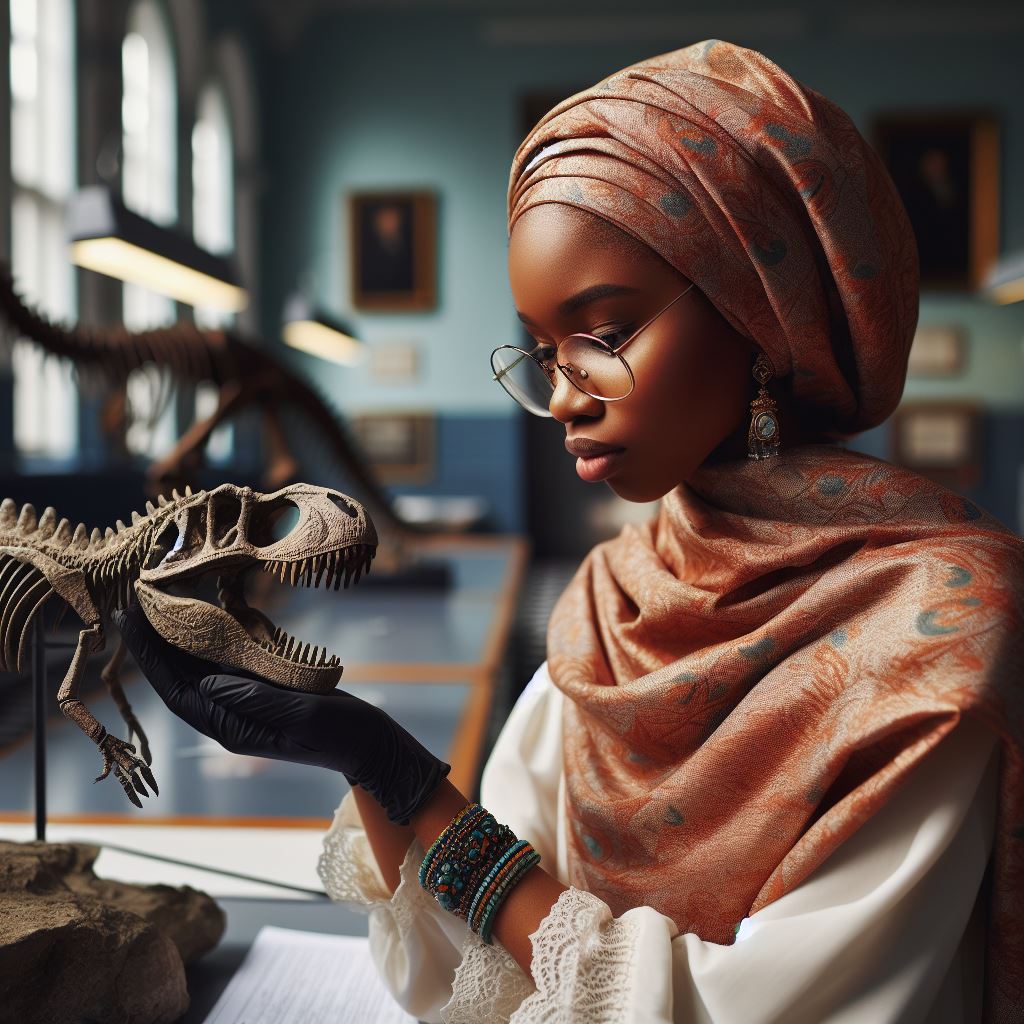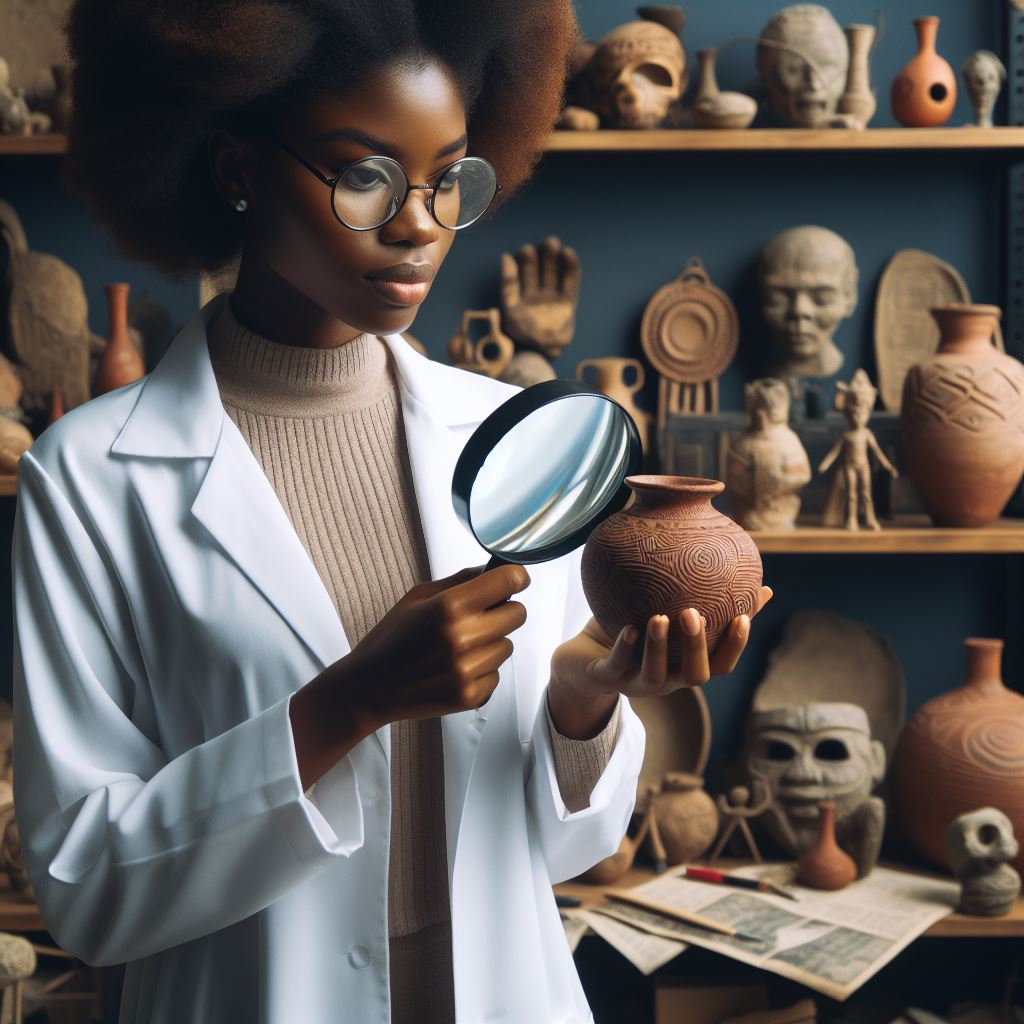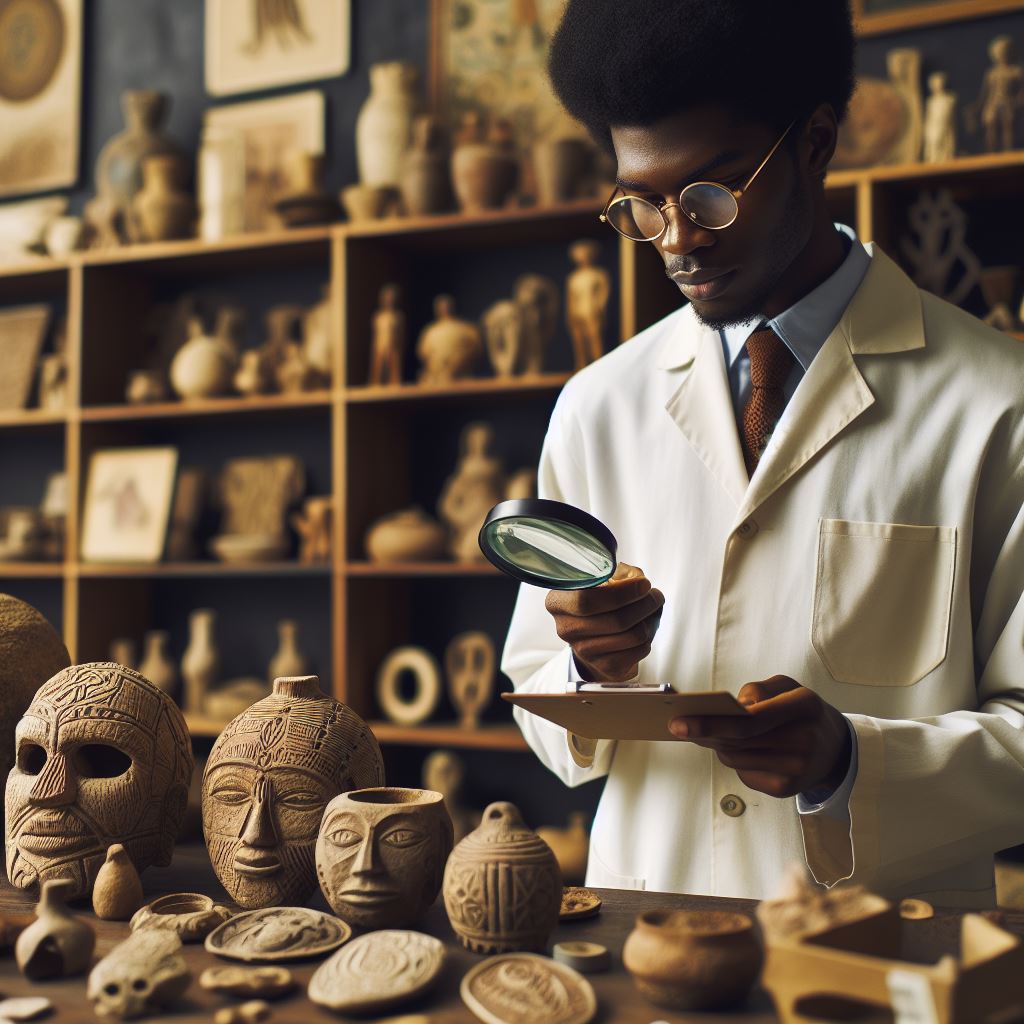Introduction
Defining Traditional Medicine in Nigerian Culture
Traditional medicine encompasses the indigenous health practices in Nigeria. These practices utilize natural resources like herbs, roots, and animal parts.
Traditional healers, known as herbalists or medicine men, play a vital role in communities. Their knowledge of local flora and fauna is extensive and passed down through generations.
This medical tradition is deeply embedded in the cultural fabric of Nigerian society.
Traditional medicine includes spiritual healing and divination practices. Healers often combine physical remedies with spiritual guidance.
These practices are believed to address both physical and spiritual ailments.
The holistic approach of traditional medicine is crucial in Nigerian culture. It reflects a worldview that sees health as a balance between body, mind, and spirit.
Importance of Traditional Medicine in Nigerian Society
Traditional medicine is integral to healthcare in Nigeria. It is the primary health resource for many rural communities. These communities often lack access to modern medical facilities.
Traditional medicine offers accessible and affordable healthcare solutions. It fills a critical gap in the healthcare system.
Traditional medicine also preserves cultural heritage and knowledge.
It connects people to their history and identity. Healers are respected community figures, often serving as cultural custodians. Their practices maintain continuity of cultural traditions and values.
Furthermore, traditional medicine contributes to Nigeria’s biodiversity conservation. Healers use a wide variety of plant and animal species. This usage encourages the preservation of natural habitats.
Sustainable harvesting practices are often part of traditional medicine. These practices help maintain ecological balance and protect endangered species.
Economic benefits also arise from traditional medicine. It creates employment opportunities for local harvesters and sellers of medicinal plants. The traditional medicine market supports many livelihoods.
It stimulates local economies and reduces poverty levels.
Traditional medicine can also complement modern healthcare. Integrative approaches combining traditional and modern practices are emerging.
This collaboration enhances patient care and broadens treatment options. It respects and validates the knowledge of traditional healers.
In summary, traditional medicine is a cornerstone of Nigerian culture. It provides essential healthcare, preserves cultural heritage, and supports economic and environmental sustainability.
Recognizing and integrating traditional medicine within the broader healthcare framework is vital. It ensures that Nigeria’s development goals are inclusive and culturally relevant.
Traditional medicine holds the key to holistic and sustainable development in Nigeria.
Historical background of Nigerian traditional medicine
- Traditional medicine in Nigeria has a rich history dating back centuries.
- It has roots in the indigenous cultural practices of various ethnic groups.
- Ancient civilizations such as the Nok, Benin, and Igbo have contributed to its development.
Origins of traditional medicine in Nigeria
Traditional medicine in Nigeria can be traced back to ancient times when indigenous communities relied on natural remedies and healing practices.
The use of herbs, plants, and other natural resources to treat ailments was common among different ethnic groups across the country.
These traditional healing methods were often passed down through generations and incorporated into local customs and rituals.
The practice of traditional medicine in Nigeria was influenced by the beliefs, values, and spiritual practices of indigenous cultures.
Many traditional healers were seen as spiritual guides and mediators between the physical and spiritual worlds.
They used a combination of herbal remedies, incantations, and rituals to restore harmony and balance to the body, mind, and spirit.
Influence of indigenous cultural practices on traditional medicine
Indigenous cultural practices play a significant role in shaping the beliefs and practices of traditional medicine in Nigeria.
The concept of holistic healing, which integrates the physical, mental, and spiritual aspects of health, is deeply rooted in indigenous cultures.
Traditional healers often consider the interconnectedness of the individual with their environment and community when diagnosing and treating illnesses.
The use of symbolism, storytelling, and rituals in traditional medicine reflects the cultural values and traditions of different ethnic groups in Nigeria.
Healing ceremonies and rites of passage are integral parts of traditional healing practices, serving as ways to mark important life events and facilitate healing and transformation.
In a nutshell, the historical background of Nigerian traditional medicine is shaped by the origins of indigenous healing practices and the influence of cultural beliefs and traditions.
Understanding this rich history is essential for appreciating the holistic approach of traditional medicine in Nigeria and its significance in the healthcare system.
Read: Exploring Semiotics in Communication Arts
Principles and Beliefs of Nigerian Traditional Medicine
The Foundation of Nigerian Traditional Medicine
Nigerian traditional medicine is deeply rooted in the country’s cultural and spiritual beliefs. These practices have been passed down through generations, preserving rich knowledge and traditions.
Nigerian traditional medicine includes herbal remedies, spiritual healing, and rituals to treat various ailments.
The Spiritual Beliefs Underpinning Healing Practices
Spiritual beliefs play a crucial role in Nigerian traditional medicine. Many Nigerians believe that illnesses can have spiritual causes. This belief leads to the integration of spiritual healing methods in traditional medical practices.
Healers often perform rituals to appease spirits and ancestors, seeking their guidance and support.
Traditional healers, or “Babalawos,” act as intermediaries between the physical and spiritual worlds. They possess deep knowledge of herbal medicine and spiritual practices.
Healers use divination methods, like “Ifa,” to diagnose and treat illnesses. These divination techniques involve communication with spirits to understand the root cause of ailments.
Cultural Significance of Traditional Healing
Traditional medicine is not only about physical healing but also about maintaining cultural identity. It reinforces the community’s connection to their ancestors and cultural heritage.
Traditional healers hold a revered position in society, respected for their wisdom and healing abilities. Their practices reflect the community’s values and beliefs, providing a sense of continuity and stability.
Role of Traditional Healers in Knowledge Preservation
Traditional healers play a vital role in preserving and passing down medical knowledge. They learn through apprenticeships, where experienced healers mentor younger generations.
This hands-on training ensures that valuable knowledge is not lost over time. Healers document herbal remedies and healing practices in oral traditions, safeguarding this information for future generations.
Herbal Medicine in Nigerian Traditional Practices
Herbal medicine is a cornerstone of Nigerian traditional healing. Healers use various plants and herbs to create remedies for different ailments. These natural treatments are often tailored to the individual’s specific needs.
Healers possess extensive knowledge of local flora and their medicinal properties, which they use to formulate effective treatments.
The Integration of Traditional and Modern Medicine
There is a growing recognition of the value of traditional medicine in Nigeria. Efforts are being made to integrate traditional practices with modern healthcare.
This integration aims to provide holistic care that respects cultural beliefs while benefiting from modern medical advancements. Collaboration between traditional healers and medical professionals can enhance healthcare delivery.
Challenges and Future Prospects
Despite its importance, traditional medicine faces challenges such as lack of formal recognition and regulation. Efforts to document and validate traditional practices can help address these issues.
Promoting research and education on traditional medicine can ensure its continued relevance and contribution to Nigeria’s healthcare system.
In review, Nigerian traditional medicine is a rich tapestry of spiritual, cultural, and herbal practices. Traditional healers play a crucial role in preserving this knowledge and ensuring its transmission to future generations.
Recognizing and integrating traditional medicine can enhance Nigeria’s healthcare system, honoring its cultural heritage while embracing modern advancements.
Read: Developing Critical Thinking in Language Arts
Traditional Healing Techniques in Nigeria
Nigeria boasts a rich tapestry of traditional healing techniques that have endured for centuries. These methods, deeply rooted in the country’s diverse cultures, continue to thrive alongside modern medicine.
Herbal Remedies
Herbal remedies form the cornerstone of traditional healing in Nigeria. Healers use plants, roots, and herbs to create potent mixtures. Common herbs include neem, moringa, and bitter leaf. These plants are believed to have powerful medicinal properties.
Neem, for instance, is used to treat malaria and other infections.
Moringa is praised for its nutritional and medicinal benefits. Bitter leaf is used to manage diabetes and lower blood sugar levels. Healers often prepare these remedies as teas, infusions, or powders.
Divination Practices
Divination plays a crucial role in traditional healing. Practitioners use various methods to diagnose and treat illnesses.
One common technique is Ifá divination, practiced by the Yoruba people. It involves consulting the Ifá oracle through a Babalawo (priest).
The Babalawo interprets signs and symbols to identify the root cause of an ailment.
This practice is deeply spiritual and relies on the belief that illnesses often have metaphysical origins. The Babalawo then prescribes specific remedies or rituals to address the issue.
Spiritual Rituals
Spiritual rituals are integral to traditional healing in Nigeria. Many communities believe that spiritual forces influence health.
Rituals often involve prayers, offerings, and sacrifices to appease deities or ancestral spirits.
One such ritual is the “Ebo” performed by the Yoruba. It involves offering food, animals, or other items to the gods.
The purpose is to seek divine intervention in healing. Another example is the “Igbeuku” ritual among the Igbo, aimed at cleansing individuals of spiritual impurities.
Efficacy and Popularity
Despite the prevalence of modern medicine, traditional healing techniques remain popular in Nigeria. Many Nigerians trust these methods due to their deep cultural significance and historical effectiveness.
Herbal remedies, for instance, are accessible and often affordable compared to pharmaceutical drugs.
Studies have shown that certain traditional remedies can be effective. For example, research on neem and moringa supports their medicinal benefits.
However, the efficacy of divination and spiritual rituals is more challenging to quantify scientifically.
Nonetheless, many Nigerians report positive outcomes from traditional healing. They believe these methods address both physical and spiritual aspects of health.
This holistic approach resonates with many, fostering continued reliance on traditional practices.
In fact, traditional healing techniques in Nigeria encompass herbal remedies, divination, and spiritual rituals. These methods remain deeply ingrained in Nigerian culture and continue to serve as vital components of healthcare.
While modern medicine offers advanced treatments, traditional practices endure due to their cultural relevance and perceived efficacy.
Read: Student Experiences: Life in Communication Arts

Challenges and Controversies Surrounding Nigerian Traditional Medicine
Lack of Regulation and Standardization
Traditional medicine in Nigeria lacks proper regulation and standardization. This absence of oversight creates significant challenges. Many practitioners operate without formal certification or training.
Consequently, the quality and safety of treatments vary widely. This inconsistency can lead to harmful health outcomes. Patients often receive incorrect diagnoses or ineffective remedies.
Furthermore, there are no established protocols for traditional medicine practices.
This results in inconsistent treatment methodologies. Without standard guidelines, the efficacy of traditional medicine remains questionable. Regulatory bodies struggle to enforce rules due to limited resources.
This lack of enforcement perpetuates unregulated practices.
The government has attempted to address these issues. However, efforts remain insufficient and sporadic. Regulatory frameworks for traditional medicine are either underdeveloped or poorly implemented.
These gaps in regulation undermine public trust in traditional medicine.
Additionally, there is a scarcity of clinical research on traditional remedies.
This dearth of scientific validation contributes to skepticism. Potentially beneficial treatments remain unexplored or unverified.
Transform Your Career with Expert Guidance
Get personalized mentorship consulting that’s tailored to your unique path. Our expert advice is actionable and exclusive.
Get StartedSkepticism and Criticism in Modern Society
Traditional medicine faces considerable skepticism in modern Nigerian society. Many Nigerians prefer Western medicine due to perceived reliability.
This preference is reinforced by negative perceptions of traditional practices. Critics argue that traditional medicine lacks scientific basis. They view it as archaic and ineffective.
Media portrayals often highlight negative aspects of traditional medicine.
Stories of malpractice and fraud tarnish its reputation. These narratives contribute to public distrust and reluctance to use traditional remedies.
Educated urban populations are particularly critical. They associate traditional medicine with rural and less educated communities.
This association perpetuates stereotypes and biases. It creates a cultural divide between traditional and modern medical practices.
Furthermore, the integration of traditional medicine into the healthcare system is limited. Hospitals and clinics rarely incorporate traditional treatments.
This exclusion reinforces the marginalization of traditional medicine. Health professionals often dismiss traditional practices, exacerbating the divide.
Efforts to bridge this gap face resistance. Both from within the medical community and the public.
Advocates for traditional medicine struggle to gain recognition. They contend with both cultural and institutional barriers.
Nigerian traditional medicine encounters significant challenges and controversies. The lack of regulation and standardization undermines its credibility and safety.
Skepticism and criticism from modern society further complicate its acceptance. Addressing these issues requires comprehensive regulatory reforms and increased scientific research.
Bridging the gap between traditional and modern medicine can enhance Nigeria’s healthcare system. Both approaches can coexist, benefiting from each other’s strengths.
However, achieving this integration demands concerted effort and open-mindedness.
Read: Communication Arts: Balancing Theory and Practice
Anthropological perspective on Nigerian traditional medicine
When examining Nigerian traditional medicine from an anthropological perspective, it is important to analyze the cultural significance of traditional healing practices in Nigerian communities.
These healing practices have been passed down through generations and are deeply embedded in the cultural fabric of the society.
The Cultural Significance of Traditional Healing Practices
- Traditional healing practices in Nigeria are often tied to spiritual beliefs and practices.
- Healers are revered members of the community and play a significant role in maintaining social harmony.
- Traditional medicine is seen as a holistic approach to healing that addresses not only physical ailments but also spiritual and emotional well-being.
- Many Nigerians prefer traditional medicine because it is perceived as more accessible and affordable compared to Western medicine.
- Traditional healers often use plants, herbs, and rituals that are handed down from generation to generation, creating a sense of continuity and connection to the past.
The Impact of Globalization and Modernization
- Globalization and modernization have had a significant impact on traditional medicine traditions in Nigeria.
- Western medicine and pharmaceuticals have become more readily available in urban areas, leading to a decline in the use of traditional healing practices.
- Many young Nigerians are now turning to Western medicine for their healthcare needs, leading to a decline in the popularity of traditional medicine.
- However, there is also a growing interest in traditional medicine among some segments of the population who see it as a way to reconnect with their cultural heritage.
- Some traditional healers are adapting their practices to incorporate modern techniques and technologies in order to attract a new generation of clients.
In general, Nigerian traditional medicine plays a vital role in the cultural and social fabric of Nigerian society.
While the impact of globalization and modernization has led to some changes in the way traditional healing practices are perceived and practiced, there is still a strong connection to these ancient traditions that continue to shape the health and well-being of the Nigerian people.
Conclusion
Key Points about Nigerian Traditional Medicine
Nigerian traditional medicine is deeply rooted in the culture and history of the people. It relies on indigenous knowledge passed down through generations.
This medicine uses natural resources like herbs, roots, and animal parts. Traditional healers, known as herbalists, play a vital role in Nigerian communities. They provide not only physical healing but also spiritual guidance.
Nigerian traditional medicine is holistic, addressing the body, mind, and spirit. This approach contrasts with the often fragmented methods of Western medicine.
Traditional practices include herbal remedies, divination, and rituals. These practices are integral to the social fabric of Nigerian life. They are not merely alternatives but primary health care sources for many.
Research shows that traditional medicine in Nigeria is effective. It treats various ailments, including malaria, diabetes, and hypertension. Herbal remedies have been scientifically validated for their medicinal properties.
This validation underscores the value of traditional knowledge in modern health care. Traditional medicine also emphasizes preventive care, promoting a balanced lifestyle.
Cultural anthropology highlights the importance of traditional medicine in Nigerian society. It is more than just a health practice; it is a cultural identity.
Traditional medicine reinforces community bonds and preserves historical continuity. It reflects the Nigerian worldview, blending physical and metaphysical realms.
Importance of Understanding Traditional Healing Practices
Understanding traditional healing practices is crucial for several reasons. First, it respects and acknowledges indigenous knowledge systems.
These systems offer valuable insights into natural remedies and health maintenance. They also provide a rich source of information for scientific research and drug development.
Second, preserving traditional healing practices safeguards cultural heritage. It ensures that future generations can access this knowledge.
This preservation is vital in a rapidly modernizing world. Traditional medicine represents a connection to ancestral wisdom and cultural roots.
Third, integrating traditional medicine with modern health care can enhance overall health outcomes. It offers a more comprehensive approach to patient care.
Collaboration between traditional healers and medical professionals can bridge gaps in health care delivery. This integration can improve accessibility and affordability of health care.
Moreover, traditional healing practices contribute to economic development. They provide livelihoods for many practitioners and contribute to the local economy.
Herbalists and traditional healers often source materials locally, promoting sustainable use of natural resources.
Finally, understanding traditional healing practices fosters mutual respect and cultural exchange. It promotes intercultural dialogue and understanding. This dialogue is essential in a diverse and multicultural society like Nigeria.
Preserving Nigerian Traditional Healing Practices
Preserving Nigerian traditional healing practices requires deliberate effort. Documentation and research are essential to capture and validate traditional knowledge.
Educational programs can raise awareness about the value of traditional medicine. These programs should target both local communities and the broader public.
Government policies should support the integration of traditional medicine into the national health care system. Regulatory frameworks can ensure the safe and effective use of traditional remedies.
Support for traditional healers through training and certification can enhance their skills and credibility.
Collaboration between traditional healers and modern medical practitioners is crucial. It can lead to innovative health care solutions. Such collaboration should be encouraged and facilitated by relevant authorities.
In closing, Nigerian traditional medicine is a vital cultural and health resource. Understanding and preserving these practices is essential for cultural continuity and improved health outcomes.
By valuing traditional medicine, we honor our heritage and enrich our health care system.




